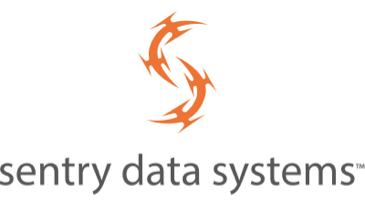SPONSORED CONTENT
By: Diana Sierra, MPH, VP, Contract Pharmacy Partnership & RVS Operations, Sentry Data Systems
For years, covered entities generated savings from the 340B program largely by contracting with retail pharmacies. Brick-and-mortar storefronts in their local communities, many of them trailblazing independent pharmacies, provided the most benefit for covered entities in the early years of the program.
In the past five or six years, however, there’s been a significant uptick in hospitals contracting with specialty pharmacies. That’s coincided with a rapid growth in the number of high-priced specialty drugs, which comprised about 36% of the overall prescription-drug market in 2019, up from 29% in 2015, according to Drug Channels Institute, making them the fastest-growing and largest category of medications.
Provided you have a solid grasp of sometimes complex specialty drug dispensing fee models, contracting with specialty pharmacies is a smart and relatively low-risk way to maximize your 340B benefits. But specialty drugs and the relationship between covered entities and specialty pharmacies are different when compared with non-specialty medications and contract retail pharmacies, so it’s worth exploring the nuances of what to know, what to look out for, and the pros and cons of those relationships.
Specialty pharmacy pros and cons
Specialty drugs are not well defined. However, Medicare Part D provides a financial threshold as costing more than $670 per month, with the potential to increase to $780 in 2022 as noted in the final rule from the Centers for Medicare & Medicaid Services (CMS). In addition, specialty drugs are different from other prescription medications in several ways:
- Often prescribed to treat rare or complex health conditions
- Generally higher cost medications, associated with higher costs to manage
- Sometimes have additional wholesaler requirements
- Usually shipped to the patient or administered in a clinical setting (such as oncology infusion drugs)
- Do not have brick-and-mortar locations where patients pick up the medications
- Are in a limited distribution model by the manufacturer
There are, of course, advantages and disadvantages of contracting with specialty pharmacies. The higher cost of specialty drugs means that potential 340B benefits are also higher, so covered entities can earn more savings with fewer pharmacy contracts. The lower claims volume also decreases your risk of non-compliance in an audit.
However, specialty drugs have a higher dispensing/administration fee than other medications, and those fees can be complex and a challenge to manage. Additionally, insurance companies, not covered entities, decide which specialty pharmacies patients must use to fill their prescriptions — meaning there’s no guarantee it will be a specialty pharmacy that the covered entity has under contract.
So it’s key that covered entities assess their specialty pharmacy network at least quarterly to ensure it aligns with your own specialty pharmacy operations and overall 340B program goals.
What comes after the contract
There are a few special considerations and processes covered entities must initiate once they’ve established a relationship with a specialty pharmacy:
Request wholesaler accounts. For each contract with a specialty pharmacy, a covered entity needs a designated account with the specialty pharmacy division of your wholesaler. Without it, you won’t be able to replenish most of the specialty drugs the pharmacy is dispensing, because those drugs aren’t on the regular wholesaler drug catalog.
Additionally, it’s important to alert your wholesaler of the specialty items you need added to the price catalog — or to reach out to the manufacturer or third-party vendor to request access and replenishment permissions resulting from limited distribution drugs.
Review HRSA notices for information regarding specialty drugs and limited distribution plans. HRSA compiles and posts notices from manufacturers that dictate which specialty pharmacies fill and replenish which specialty drugs. The manufacturers determine which specialty pharmacies they will work with, and drug makers often have specific requirements or processes that covered entities must follow to replenish those drugs.
Manufacturer notices may stipulate not only which specialty pharmacies must be used to fill drugs, but also how covered entities should contact them with replenishment requests, information on package configurations and more. If you aren’t checking the HRSA website regularly for changes in replenishment policies, you could run into challenges, including not receiving the drugs you need and expect.
Overall, working with specialty pharmacies can be rewarding to meet your patient care needs, but complex. Having a 340B management and compliance partner to help you navigate the nuances can make all the difference.

Diana Sierra, MPH, is Vice President, Contract Pharmacy Partnership & RVS Operations, Sentry Data Systems. She can be reached at dsierra@sentryds.com.



